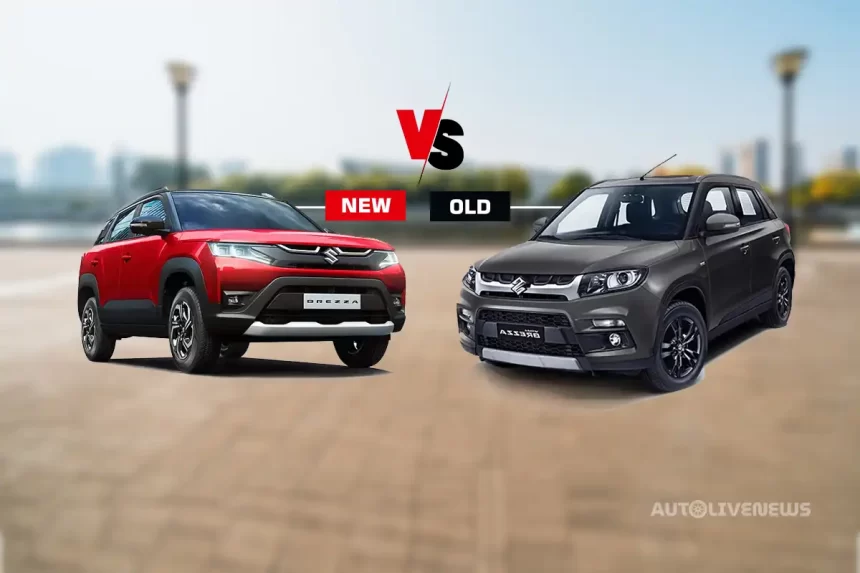Choosing between a new or used car is a critical decision for many.
People may simply want the best cost deal. They usually wish for a car with the best value and dependability. Have you ever noticed why some individuals always go by the latest model cars while other people choose to get a used car? The dispute has strong arguments between both parties. In this blog, we will explore this concept in depth to find out which one is the best option for you. Whether you’re an initial purchaser or looking to buy a used car, understanding the differences between used and new automobiles will allow you to pull away with confidence.
So, let’s use the globe of car purchasing. Explore its benefits and disadvantages. Find expert recommendations that will guide you towards the correct option.
WHAT DO YOU MEAN BY NEW CAR?
When we talk about a ‘new car’ we mean a car which was recently brought and has no previous owner. It is in a beautiful and untouched condition. A new car arrives directly from the dealer. It is one of the most recent innovations in automobile technology. It comes with a sense of assurance with a complete guarantee.
WHAT DO YOU MEAN BY USED CAR?
A ‘used car’ has undergone more than one prior ownership. It could be an old version or a historic car with a record of history. Used cars are normally less expensive. It has already become
depreciated. They lose value more rapidly as time passes than new cars.
Market Outline:
The automobile market today is extremely diversified and profitable. It provides various choices for both new or used car consumers. Let us take it below:
New Car Market:
A new car comes with the latest technology and enhanced features. Automobile manufacturers aim to produce innovative cars every time. It includes fuel efficiency, technology and self-driving capabilities. It offers financial benefits such as lower interest rates, discount deals, and unique leased options. Thus it makes it appealing to many potential purchasers.
Used Car Market:
The purchasing of a used car industry has grown tremendously. It provided consumers with a diverse range of options to suit almost any financial need. The Certification Pre-Owned schemes have grown in popularity these days. It is a process in which sellers and manufacturers verify that a used car meets particular standards of quality. It is done to include extra guarantees. Online trading platforms and dealers provide comprehensive details of used cars. This allows customers to choose dependable and clean second hand cars. A lot of individuals prefer old cars because of their monetary benefits and reduced depreciation rate.
Benefits of Buying A New Car
New cars include technologically advanced features and modern comforts. These functions include increased fuel economy and advanced entertainment systems etc.
- Guarantee and Service: New cars are covered by full guarantees. It covers service and repairs for a set term or distance. This gives you comfort of mind as well as avoids unanticipated costs.
- Financing Options: Manufacturers and dealers offer attractive financing deals. This can include low interest rates and special lease terms. Along with various incentives like cashback offers etc.
- Resale worth: New cars tend to hold their worth better in their first few years. This results in a greater selling price than older ones.
Disadvantages of Purchasing A New Car
- High Prices: New cars have a substantially greater buying price than used ones. This may be a significant consideration for those with limited finances.
- Depreciation: New cars rapidly decrease in value. The biggest depreciation occurs in the initial few years of ownership. It is predicted that a new car might lose as much as twenty percent of its initial purchase price in its first year.
- Insurance Premiums: Insurance rates for new cars are generally higher. This is because of their greater replacement expenses and the worth of the latest additions.
Advantages of Purchasing A Used Car
- Reduced buying price: The biggest benefit of purchasing a used vehicle is its reduced pricing. Used cars are often less expensive than brand-new models. It provides greater value for cash.
- Slower Depreciation: Used cars have witnessed the most substantial loss. This implies losing price gradually as time passes. Thus resulting in higher value stability.
- Diversity of possibilities: The used car provides a diverse range of possibilities. It can range from nearly new vehicles to old models. This enables them to locate the car precisely within their financial limits.
- Fewer Coverage Costs: Insurance rates are cheaper in new cars. Used cars are less expensive to replace than new ones.
Disadvantages of Purchasing A Used Car
- High Servicing Prices: A Used car might need more regular repairs and maintenance. They’re old in condition with high mileage.
- Short Warranty period: Many used cars have limited or no assurance. This might result in increased privately maintained bills.
- Unknown past: There will always be the chance of an adverse past. Such as prior accidents and inadequate servicing. This may also include any hidden problems.
Important Considerations to Remember
- Cost: Assess your financial status and figure out the amount you are capable of spending on a car. Consider the cost of ownership along with coverage and servicing. It also includes other related charges.
- Uses and Demands: Think about what you need personally or how well you intend to operate the car. Your choice can be influenced by factors. This includes daily travel or family members.
- Sale Ideas: Consider the length of time you intend to retain the car. Also, find its possible sale price. A brand-new vehicle may be a better alternative if you intend to sell it in the next few years. A used car may be more cost-effective for overtime usage.
- Examination and Testing Drive: An extensive evaluation and test driving are essential for used cars. Check the background data. Also, let a reputable technician check it before purchasing.
Professional Advice and Tricks Certification pre-owned (CPO) initiatives:
Choose verified pre-owned cars. These cars have undergone examination repair, and approval by the company that makes them. They frequently come with longer guarantees and added perks.
- Bargaining Advice: Whether purchasing new or secondhand, usually bargain the cost. Study the current selling price and dare to leave if the price doesn’t seem fair.
- Historical Reports: Always request an auto history report for purchasing a new car. It can verify any previous incidents, title difficulties, or maintenance documents.
- Periodic Changes: Choose a particular time of the year. Such as the end of the fiscal year. This might result in greater deals as dealers strive to reach their sales goals while removing stock.
New or used car Conclusion:
Your particular requirements and budgetary constraints are the two main factors to determine your ideal choice. A New car comes with advanced equipment and assurances. This makes it an appealing choice for purchasers. While they are more expensive and degrade rapidly. A used car is less expensive and depreciates more slowly. It can give low insurance premiums benefits. Although they might need additional repairs and come with shortened warranties.
You must evaluate the variables provided in this article to make an educated choice. Hence, it can be ideally suited to your particular circumstance.









